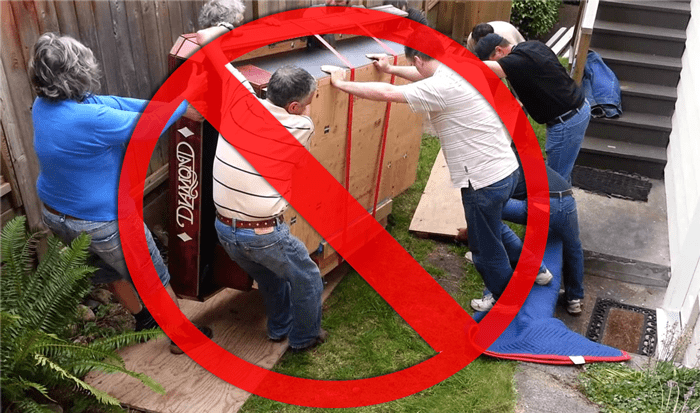
What’s Negotiable in Real Estate?
Everything. The end.
OK maybe not EVERYTHING, but pretty darn close! As I’ve learned, no two situations are the same, and no two homes are identical. While many parts of a home sale are considered “standard”, there’s also a lot of options and flexibility when it comes to negotiating terms and conditions. Besides sales price, let’s take a look at the terms and conditions you might want to keep in mind for your next real estate deal. It just might end up saving you thousands.
Fees
 There’s a lot of Fee’s when buying and selling property. Loan fees, appraisal fees, home warranty fees, HOA fees, title fees, escrow fees, the list goes on and on. Good news is all these fees are negotiable to some extent. Now, there are certain things that must legally fall onto the shoulders of one party, but there is still plenty left to be negotiated.
There’s a lot of Fee’s when buying and selling property. Loan fees, appraisal fees, home warranty fees, HOA fees, title fees, escrow fees, the list goes on and on. Good news is all these fees are negotiable to some extent. Now, there are certain things that must legally fall onto the shoulders of one party, but there is still plenty left to be negotiated.
With most fees, there’s a common practice on who typically pays. For example, it’s common that a buyer will pay for their loan appraisal, but this isn’t required legally and could be negotiated if needed.
Credits, or concessions are sometimes given to buyers from sellers to either A) help with closing/loan costs or B) offset needed repairs. But it doesn’t stop there. Pending lender limitations, a credit can be given in EITHER direction as long as both parties agree.
As a buyer, maybe you need to stand out to a seller who has multiple offers? Why not offer to pay a portion of THEIR closing costs. It’s certainly not common, but it’s a good way to help sweeten the deal and make yourself more competitive above the rest.
Pre and Post Possession
When buying AND selling at the same time, lining up your move and closing dates can become a heck of a juggle. If you are buying a home, but have to be out of your current home before you close on your new home, you can ask for a pre-possession agreement from the seller. This would allow you to move into your house before you actually close on it. Moving is stressful enough as it is, being able to move just once is certainly more ideal.
Likewise, if you are selling a home and can’t move out by closing day, you can do a post possession agreement with the buyer that will allow you to lease it back from them until you are ready – known as a Leaseback.
The price, duration, and terms are completely negotiable, and may be subject to lender limitations. Maybe allowing a seller to stay in the house for two weeks will mean the sellers don’t have to stay in a hotel and spend $3,000 on a room and storage. A seller would probably rather pay you to stay and only move once, than pay to stay at a hotel!
Repairs and Changes
For anyone who has bought a home, you know that repairs are a part of the process. A leaky pipe, cracked tile, stained carpet, these are all common issues we see day in and day out. It’s a dance between buyer and seller to figure out how much the buyer is willing to take on, and how much the seller needs to do to keep the buyer satisfied. If you prefer a seller not do their own repairs, it’s possible to negotiate a credit or price reduction as well.
But what about cosmetic changes, or personal preferences? As more and more flippers and developers enter the marketplace, many of the homes being re-sold today have been freshly remodeled. This mean the seller is typically an investor who does this for a living. So if you come into a freshly remodeled flip and decide the carpet is wrong, or just can’t stand some fixtures, or a wall is in the way, you can make a creative offer to the seller. A flipper has contractors on speed dial, and with the right offer is usually happy to change things out, or modify a home as needed to fit your needs before closing.
However, the seller might want something in return, like a non-refundable earnest deposit, in order to make your custom changes.
Personal Property
See a dining table that fits the space perfectly and you absolutely love? Include it with your offer. Many times, sellers are willing to work with buyers on certain pieces that are large or fit a space well. Pool tables as an example can be costly to move, so a seller might rather sell it to the buyer than deal with the headache and cost of moving.
There’s been times where sellers will even offer a free car with purchase of the home. Every once in a while we’ll even see home being sold fully furnished. How about a small boat on a lakefront home?
Including personal property has to be navigated carefully, as lenders don’t want to see anything else of value being transferred besides the house itself. These items can still absolutely be negotiated, but should be completed on a separate Bill of Sale. This will avoid any potential lender issues, as well as protect the buyers and sellers interests.
Contingencies
A few standard contingencies are built into the purchase agreement to help protect buyers and sellers…but mostly buyers. A contingency in real estate is an obligation to complete something successfully, otherwise you have the right to cancel/back out. These Buyer contingencies, especially for financed buyers, can be seen as inconvenient hurdles to sellers. Many of these contingencies can be removed to provide reassurance and structure a better deal in favor or one party.
Some possible contingencies are:
Buyer Sale Contingency – When a buyers current home must sell in order for the new home purchase to be completed.
Back-up Contract Contingency – When a seller accepts a 2nd contract to sell their home which only becomes valid if the first deal falls through.
Non-Refundable Earnest Deposit – When a buyer waives their right to any contingencies that protect them and may release the earnest deposit to the seller before closing.
Appraisal Contingency Waiver – Buyers waives the right to cancel if the property does not appraise for the agreed upon price.
A Survey Contingency – When a property must pass an independent survey before being sold.
How about inheriting a cow as part of a home purchase? Seen it!
How about paying for a year of pool maintenance for a buyer up front? Seen it!
What unusual terms and conditions have you come across? What unique needs do you have in a real estate transaction?
Contact Me



Comments are closed.